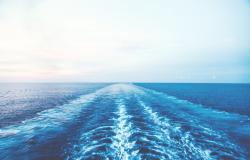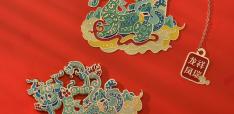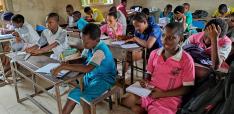“This Ain’t No Technological Breakdown”: The Great Disruption of 2020*

Many of GP’s contributors have been writing about the pandemic as part of their scholarly work. We were also curious about their personal experiences and thoughts amidst these testing times. We decided to ask our columnist, Brian Stoddart, to share some of his personal reflections.
COVID-19’s arrival hit my lower level microcosm of a globalised world with an odd first impact.
For several years I have lectured on cruise ships, an industry that for many typified the process known as “globalisation”. Carnival Corporation, pre-COVID, accounted for half the entire industry with over one hundred cruise liners and close to one hundred thousand staff across several company “flags”. Incorporated in Panama but based in America, Carnival paid relatively little American tax while service and crew staff came mainly from Indonesia and the Philippines. As the industry boomed recently, those massive ships came to symbolise “over tourism” in places like Venice and Amsterdam (the latter, ironically, headquarters for Holland America, a major Carnival company).
This was an archetype for the modern global world as we knew it, and my task was to “edutain” long distance cruise passengers on the history and culture of the regions and places visited. So, over the years, I spoke about Gertrude Bell and the Middle East (including Sykes Picot); the Arab slave trade; the rise of Islam; the British and other empires; George Orwell and Burma; Isabella Bird and the other women explorers; Robert Louis Stevenson and the Pacific; Errol Flynn in Papua New Guinea; how golf got to Japan; Trobriand cricket; Chinoiserie; the Straits Chinese; Japanese woodblock prints; India’s labour and business diaspora; the South China Sea; the Indian Ocean; Belt and Road – you get the picture.
One big crowd favourite was “How Mr Honda Changed Southeast Asia”, a series of slides showing traffic in places like Vietnam and Malaysia, and all the amazing things visitors might see carried on these small motor bikes. It was funny and instructive, demonstrating how the bike changed gender relations, increased social mobility, stimulated small business, brought pollution problems as well as high fatality rates, and changed spatial sense.
The “master mariners” in these audience (and sometimes there were eight hundred of them) were really keen to learn about the world and its differences. In many cases, far more so than the students who used to turn up to my university lectures. That belied the popular myth that cruise ship passengers just wanted food and booze (well, some did, yes) and ignored everything else around them. And I learned much from people like the former judge of the International Criminal Court, military intelligence and FBI personnel, the (all but certainly) ex-CIA member, businesswomen, jewellers to Middle East potentates, golf merchandisers and many others.
This created a high-level global dialogue (apart from the American lecturer who equated the Australian Labor Party with the Republicans) seemingly absent from too many global diplomatic exchanges. And, like many others on these ships, we made great friends who spent time with us in New Zealand and hosted us across America and elsewhere. This was a “people to people” level of success process seen regrettably rarely in other spheres.
So, we were to join a ship in Dubai, leave it in Greece, then travel across Europe by train to meet our eldest daughter who lives in Yorkshire. Global normal. Then the first Princess line COVID problem stories appeared, and travel plans changed. Could I join a different ship in our other “home”, Fremantle in Western Australia? A round-the-world cruise had been diverted from Asia to traverse Australia. Of course. But that ship, and several others in similar circumstances duly arrived, only to go no further. Some passengers were admitted to hospital, some died, many were flown home, and others set out on long sea journeys back. That was typified by the extraordinary story of the Artania.
That was the point at which what for me became the COVID “themes” first emerged, beginning with the finger pointing.
As I have written elsewhere the port of Fremantle, just a few hundred metres from my home, became a major site for blaming the global spread of COVID on the cruise ship industry. Western Australia’s Premier remains adamant that cruise ships will never again visit “his” state. That was an accusatory parallel to expressions like the “Wuhan flu” and the “China virus”.
We all know how that blame game spread: for and against the World Health Organisation; increased antagonism towards political refugees in Europe and elsewhere; criticism of national data sets, especially those in the Global South that were automatically assumed to be dodgy; suspicion about the actions of others.
The cruise industry worldwide became a target and the result for Carnival has been catastrophic because it is now tipping close to bankruptcy. And the blame game frames that financial quagmire, in the prime shape of a major class action that alleges Carnival’s senior management sent passengers to sea knowing COVID was already a problem on ships. That was bad, but Carnival also suffered a major cyberattack recently and another class action over alleged disclosure of personal identity information is imminent.
But Carnival is not alone in this process. As some readers will know, sport has been a major part of my professional and personal life, and right now I am firmly in the camp of “they should not be playing”. Dustin Johnson winning $11 million or so for winning just one golf tournament is questionable enough at the best of times, but now? And again, before no spectators?
Major professional sports around the world have produced their own blame game dramas, for example, with major League Baseball fielding much criticism over the standoff between players and owners in agreeing to a truncated season played in empty stadiums. Novak Djokovic attempted an alternative tennis tour and ran into problems. The southern hemisphere’s Super Rugby season was immediately dismantled because it involves Australia, New Zealand, South Africa, Argentina and Japan. Travel was impossible. The competition’s future remains unclear.
What emerged here because of travel restrictions was a heightened criticism of what is now perceived as greed on the part of organisers and players. While the Australian states and the country itself remain locked up, for example, football teams have been allowed to travel, albeit under quarantine conditions (which a few muppets have chosen to ignore, so exacerbating the problem). Yet my brother works on mine sites with interstate workers who have now not seen their families for six months or more. The scale of values is coming more into question.
And that is precisely where the pre-COVID global condition becomes relevant because, cloak it as much as they want in the “sport will keep up community spirit” line, this is about monies driven largely by television rights. Keep the games going to minimise loss for all parties. That is, the specific need trumps the collective cause at any point. It may always have been thus, but COVID has aggravated the condition.
The important point here is that in my small world and the much larger one alike, COVID has accelerated several pre-COVID trends. A simple case in point – in several countries around the world the line now is that COVID has produced an economic recession. In several cases, Australia included, COVID simply sped up the process and the question now is “how best to respond?”
And that extends to the personal level of behaviours. I was in a shop queue yesterday and really bothered by another customer who insisted on standing right behind me. Behaviours have to change, and that includes accustomed personal “rights” as they were perceived.
Those blame games and greed themes, then, have spawned a broader and more dangerous one: exceptionalism, for which read isolationism. It is ironic that “self-isolate” is now in health vogue at the very moment its national and international application provides the biggest challenge to globalism.
Think here of, say, the USA and China, Australia and China, India and China. The tensions predated COVID, but the virus has elevated the driving principles. America’s approach to WHO is another case in point, as is the UK’s continuing blatherations on BREXIT. That is to say, many countries are now turning inward reflexively, and national assumptions of cultural superiority are being justified by the needs of the circumstance.
Two dimensions of this have become apparent: build the fortress, and attack the other one. Trump’s MAGA approach is just too obvious an example of how that dual dimension works. But it is not unique. In India, it is manifest in the Modi-BJP approach, consolidate Hindu nationalism and sideline Muslims, in what will soon be the world’s largest Muslim population.
While all this and more continues, my boundaries tighten as the COVID impact deepens. The paradox is evident: we need to be in “the global world” to see what the results of COVID are on the ground, but that global world has shut, physically. This is a new world. My timetable is smashed as the cruise ships regroup in places like Manila Bay and borders everywhere lock up more securely.
But in many respects that is the physical global world, because things are different in the virtual one where the real disruptive rise of Amazon, Netflix, Hulu et al has come with the rise of COVID.
Take the case of scripted series television where we have been constantly global. We binged the excellent French show, The Bureau, for example, a rare beast in which every episode over six seasons gets better. Set in the DGSE (General Directorate of External Security), it gives a French perspective on the Middle East and Africa, showing much of the complexity at play. False Flag, a clever Israeli series, traverses all the issues of identity, struggle, opposition and intrigue with which political scientists and others are familiar. Witch Hunt, a Norwegian corporate crime and political corruption thriller written by Siv Rajendran Eliassen and Anna Bache-Wiig, stands out for its “thinking” approach to story and its non-reliance on physical violence.
Then there is Yellowstone, one of the most successful American cable television shows ever. Starring Kevin Costner, written by Taylor Sheridan and John Linson, and set in Montana, this saga has a ranching family withstand the greed of urbanised corporate America. Even though it appeared first in 2018, it inevitably questions what all this says about America now.
Curiously, one of the few critic’s reports to see Yellowstone as about Trump appeared, of all places, in a Sydney publication. An American friend disputes that, suggesting the show simply reflects all the disillusion we have with the political process no matter where we live. Costner himself was reported as saying the show is not about politics and he might be interested in voting only if Michelle Obama was to run.
Most critics pan Yellowstone as a “soap” about white male anxiety, as an artistic mess, and for being boring – but it has rated its socks off. That has much to do, I think, with the times in which it is showing because, essentially, it is shocking. Costner and his cast dispense rough justice to all in sundry with “problems” shot or hanged without compunction. Guns are ubiquitous, characters either get tough or disappear, rights are defended forthrightly, opponents and alternative views are smashed. This is about survival, and that seems to be as much about COVID as anything else.
And the critics may well hate it but the fans do not, they are voting with their feet, literally, because cowboy boots and western clothing sales are through the roof.
 Full Disclosure: as someone whom watched the whole of Yellowstone, there is another virtual-turned-real effect of COVID, because in the affluent world we have all gone shopping.
Full Disclosure: as someone whom watched the whole of Yellowstone, there is another virtual-turned-real effect of COVID, because in the affluent world we have all gone shopping.
That economic consequence of COVID is evident everywhere. We are mountain bikers, for example, and these past few months way more people are out riding and, again, global sales are stratospheric so that major manufacturing centres like Taiwan cannot keep up with orders.
It is likely in the “settled” post-COVID world, or at least in the Global North section of it, that will continue because the genie is out of the bottle as it is, for example, in the transnational education world. As we all go shopping more online at the expense of physical retail so, too, are global students looking more to their computers and phones for education than going to physical lectures. It is in those locations that many of us will have to navigate new spaces and behaviours.
In the face of all that change, what did we do? Hired a campervan and headed for the north of Western Australia, if only to remind ourselves just how vast this state is:

But this time, the rest of Perth was with us, there was nowhere else to go and that meant navigating the four wheel drives, caravans, boats and trailers to all try and squeeze into the same few places in the “remote” far reaches.
What it did, though, was give me an idea for a television series. Instead of next writing a planned thriller set in New Zealand, Southeast Asia and America, it will be set in a caravan park up north. That might join the crime novel set on a cruise ship as a recherche du temps perdu.
Perhaps that is the big message of COVID – the global world continues in unknown form, but the greatest dramas are sometimes closer to home.
Brian Stoddart is Professor Emeritus at La Trobe University in Melbourne, an international higher education reform consultant, an award-winning screenwriter and a crime novelist.
For a personal perspective from Amrita Narlikar, please see here.
Photo by Clem Onojeghuo from Pexels
*the title is drawn from Chris Rea’s Highway to Hell.


